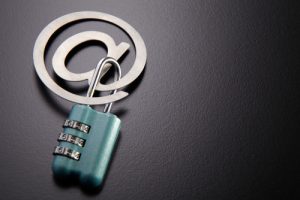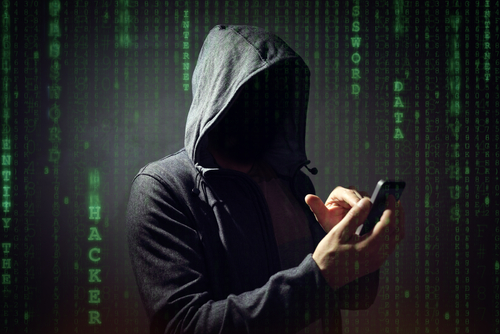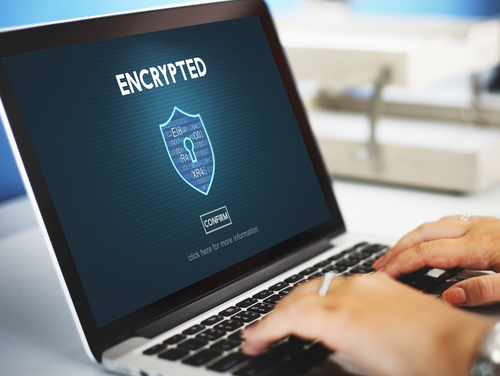If you’ve recently had your emails hacked, you may be looking for better ways to protect your online communications. Alternatively, you may want to get ahead of the game to secure your confidential messages before anyone can steal your sensitive information.
Email encryption is an added layer of security to keep your email contents safe from prying eyes. Whether your email is for personal or business use, check out how email encryption can protect your confidential messages.

What Is Email Encryption?
According to Statista, email phishing was the number one cybercrime reported in 2022. Phishing is the term used for email fraud. Fake email correspondence tricks victims into clicking links leading them to phishing sites.
Usually, these sites ask for some sort of login or personal information under the guise of a popular website service most people use. Then, your data is stolen and used for monetary gain. Not only can a person get tricked by phishing emails, but when you use public wifi or send emails within a company network, others can intercept those emails.
When you use email daily to correspond with new clients at work or subscribe to websites, it can be scary giving out your email address. You may worry that the person on the other end is going to use your email address as a doorway to access all of your valuable information.
Email encryption is when you disguise your content to keep sensitive material from being read by people other than the recipient. When you encrypt email, you obscure personal information such as the following:
- Names
- Addresses
- Social security numbers
- Account numbers
- Financial information
- Customer information
- Login credentials
- Legal documents
- Health information
- Intellectual property
Hackers may still access the email, but encryption makes the content unreadable. Encryption protects not only email messages but also attachments such as Microsoft Office Word documents, files, photos, and more.
How Does Email Encryption Work?
Basic encryption works by exchanging a set of encryption keys. A mathematical algorithm generates encryption keys called one-way functions. The standard procedure for encrypting emails is through public key infrastructure (PKI).
Using PKI, you send the email using a public key, which anyone can access. The public key transforms your plaintext content to ciphertext, which is a scrambled version of your message. The content transports from server to server while still in this ciphertext version.
Once the email reaches the recipient’s inbox, they open it, and decrypt the content using a private key. The private key usually is some sort of authentication like a password, code, etc. They may also have a one-time passcode that allows them to see the message.
Although people can still intercept these messages, without the private key, or digital ID, they cannot decipher the content. Email encryption is only one layer of protection against cyberattacks. You can also choose to have your communication channels encrypted for added security.
Email Encryption Methods
There are several different email encryption options available to protect your email account. Each one works differently to ensure your encrypted email content reaches its destination safely and securely.
Secure Sockets Layer (SSL)
Created in 1995, this is an older version of the updated TLS encryption. The way SSL works is it initiates what is called a handshake between two devices. This handshake verifies identities and checks that data has not been tampered with in transit.
This extra check prevents people who don’t have permission from seeing the email.
Transport Layer Security (TLS)
An SSL update, TLS is an email encryption security protocol. This protocol further protects content from eavesdropping, tampering, and forgery. TLS-based encryption services can also include a command called STARTTLS, which encrypts emails in transit.
As they arrive at their destination, the server decrypts them, keeping the recipient from having to authenticate themselves to read the message.
Advanced Encryption Standard (AES)
AES is a government-level encryption protocol used for classified information. Many financial institutes choose this protocol, as well. The keys are exceptionally long, which makes them harder to crack. Using AES can be very difficult for casual users, but some email providers will manage this protocol for you with little work on your end.
Pretty Good Privacy (PGP)
This encryption protocol uses public/private key pairs (asymmetric cryptography), as well as the same key for both encryption and decryption (symmetrical cryptology). They also use hashing and data compression to secure email content.
PGP can be tricky to use at times, but it has been around since the 1990s and has proven to be a secure way of encrypting email content.
Secure/Multipurpose Internet Mail Extensions (S/MIME)
S/MIME encryption is certificate-based encryption. You can both encrypt your message and a digital signature. You need public keys for each recipient on file for this encryption method. Recipients will have their own private keys.
You should be sure to keep these private keys secure. If a private key is compromised, the recipient must redistribute new public keys to potential senders and change their private key. This encryption method is not usually free unless you’ve purchased an iPhone or Mac product. A S/MIME certificate is usually purchased with one of these products.
Why Should You Encrypt Your Emails?
According to NIST, the average person spends 6.3 hours checking messages daily. These are from all platforms including emails, instant messaging, texting, and social media. Yet, email is still the most popular means of communication.
With this in mind, the NIST drafted a guide to Trustworthy Emails, which outlines the threats within email communication and the benefits of taking precautions to secure your communications. Unencrypted emails are at risk of compromising your email security and putting you at risk of suffering a data breach.
If you are an employer, email encryption helps protect the identities of your employees and clients. Companies in the finance, medical, and legal fields are particularly vulnerable. Adding another layer of security will protect you, your clients, and your employees.
For personal use, encrypting emails can keep your financial information and identity safe from cyber thieves looking to use that information to drain your accounts. Encrypting emails that contain sensitive information can give you peace of mind.
How To Get Email Encryption
There are a few options when it comes to getting email encryption. Some email platforms offer encryption options that you have to manually turn on. You can also choose an email service that provides email encryption for you.
There are many email platforms available to use. Many of them offer encryption options. Whether you want to encrypt message content for personal use or business, there are resources available to help you encrypt your emails.
You’ll want to choose a webmail provider with excellent service and easy-to-use features at an affordable price for your budget. Several larger email clients provide end-to-end email protection as part of their paid plans.
You can also use email security settings to turn on encryption with many email clients such as Yahoo, Gmail, and Microsoft Outlook email. The level of encryption will be based on your ability to set up the encryption properly and your subscription level.
Several of these big-name email providers also offer encryption of emails through their email apps, which are available for both Apple iOS and Android users.

Email Encryption Services
Some webmail providers will need a third-party app to add encryption to emails. You can also get a separate email client to provide encryption services for several accounts. There are both paid and free options.
When choosing an email encryption service, it is important to weigh both the pros and cons of each. There are several email encryption service providers to choose from. Here we will briefly review some of the most popular email encryption clients.
1. Proton Mail
Proton Mail uses end-to-end encryption when communicating with other Proton Mail users. For correspondence outside this domain, the recipient can access secure messages with a password. This service also offers an encrypted calendar and 5 GB of encrypted file storage.
There is a free option available, but it is very limited. Even paid subscriptions have limits on storage space.
2. Virtru
Virtru is great for business-level encryption. This email client is a free encryption service that integrates with Gmail. Not only can you encrypt emails with Virtru, but you can also set an expiration date on the message. You can also watermark documents to prove they came from your company.
Although this is a free service, Virtru does hold onto encryption keys, which some users may see as a security risk. Also, this service only works with Gmail and Chrome. So, if you are using any other email provider or web browser, Virtru won’t be compatible.
3. StartMail
StartMail uses PGP protocol encryption for users sending emails to other StartMail users. You can program your emails with this service to use key exchange for emails outside StartMail, but most people choose the more convenient password unlock option.
The main appeal of StartMail is that it generates aliases for correspondence with new clients or subscriptions. Anytime you message a recipient with questionable security, you give an alias. If you begin to receive spam from that recipient, you can simply delete your alias to eliminate the problem.
However, this service is expensive, and they do not have compatible mobile applications.
4. SecureMyEmail
As long as your account supports IMAP, users can secure their emails with SecureMyEmail at no cost. However, if you upgrade to a subscription, you get the option to encrypt up to 8 email accounts, which can work for small businesses with few users. This service works with Gmail, Microsoft, and Yahoo.
The recipient doesn’t need a password even if they are not a SecureMyEmail user. One of the downsides to SecureMyEmail is that you need to remember a passkey separate from your account password to authorize the encryptions. Also, you can only set message expiration on messages outside the network.
5. Private Mail
Private Mail offers email file storage of up to 10 GB and a secure calendar with a paid subscription. Mail also automatically syncs between devices. Private Mail uses PGP to encrypt your messages. It also has two-factor authentication to ensure extra protection.
This service provider is relatively expensive, although they offer a free tier. However, there are feature limitations to that free service. Another disadvantage of Private Mail is that you can only send plaintext encrypted messages. Encryption set-up for new users may be tricky, as well. This platform isn’t as simple to use as some of the others.
Sekur Does It For You
So, now you realize, yes, email encryption is essential. So, what’s your next step? Instead of figuring out how to encrypt your emails yourself, why not check out Sekur? We can help you improve your email security with SekurMail.
We have a 100% private platform with an encrypted Swiss-hosted email. So, your service will be protected by Swiss privacy laws. With SekurMail you can send encrypted emails outside of Sekur and have recipients reply within Sekur’s secure environment.
You can send unlimited-sized attachments and monitor email activity. With an easy email migration tool, we can help you quickly and efficiently switch over from your current email client. We also offer encrypted VPN and instant messaging services to help you to keep all your communications and data private.
Sekur does not data mine. If you choose our service, you’ll be free from big tech companies. Try out SekurMail with our 7-day trial.
Conclusion
We all use emails daily. It is a standard form of communication, and in those emails, we convey a lot of private information. If you want to keep this information from getting into the wrong hands, email encryption is an added layer of security.
Email encryption takes our email messages and scrambles them in a way that hackers can’t decode. With this security option, you can ensure that you share sensitive information between just you and your recipient.
Consider looking into adding email encryption to your email service to improve your security or getting a trusted email encryption provider to protect your confidential messages.

